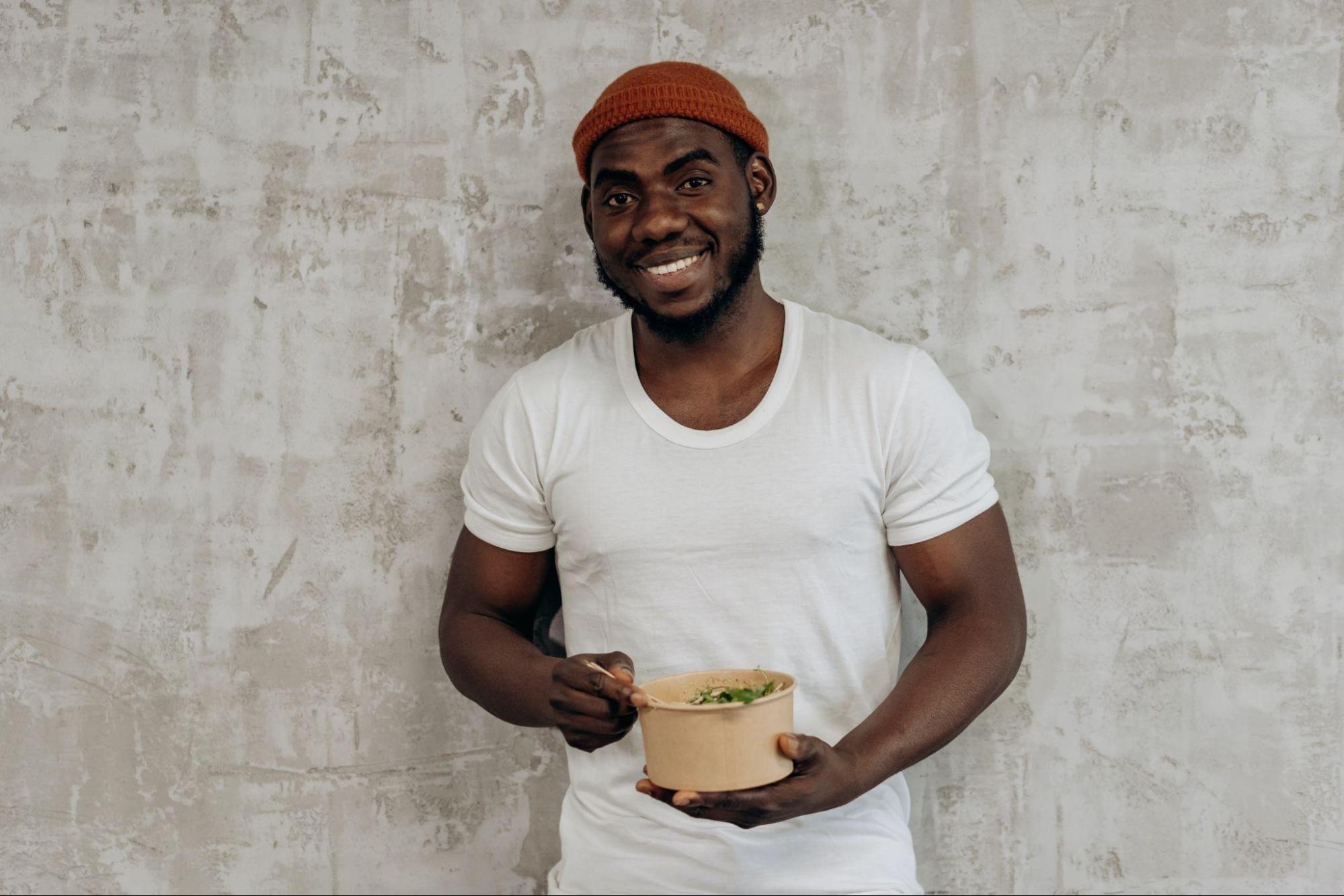The role of nutrition in athletic performance is undisputed, with meticulous meal plans and timing strategies often in play to optimize energy, muscle growth, and recovery. Yet, beyond these immediate goals lies another dimension of nutrition that's equally pivotal but less discussed: its impact on sleep quality. Just as certain foods can boost stamina or muscle synthesis, others might hold the key to restorative slumber, essential for any athlete.
Sleep, a cornerstone of recovery, can be influenced by various dietary components. From amino acids to specific vitamins, certain nutrients have shown the potential to promote better sleep patterns. This article delves into the fascinating interplay between what athletes consume and how they rest at night. Keep reading to discover foods that can be integrated into a diet for both performance and peaceful sleep.
Related Link: Best Supplements for Stress
Tryptophan: The Sleep-Inducing Amino Acid
Nature's Own Sleep Aid
Tryptophan is an essential amino acid found in many protein-rich foods. It's a precursor to the neurotransmitter serotonin, which is subsequently converted into the sleep hormone melatonin. By consuming foods high in tryptophan, athletes might boost their melatonin production, facilitating a more restful night. Foods such as turkey, chicken, nuts, and seeds are rich sources of tryptophan, making them a valuable addition to an athlete's dinner plate.
Balancing with Carbohydrates
Interestingly, combining tryptophan-rich foods with carbohydrates may amplify their sleep-promoting effects. Carbohydrates cause a release of insulin, which helps shuttle certain amino acids into muscles, leaving tryptophan to dominate in the bloodstream. This dominance allows it to cross the blood-brain barrier more effectively, where it can exert its sleep-enhancing effects. Consider pairing lean poultry with quinoa or whole grains for an evening meal to harness this synergy.
Are you ready to take your fitness performance to the next level? Visit HUMBLEROOTS today!
Magnesium: The Relaxation Mineral
Soothing Muscles and Mind
Magnesium is often referred to as the "relaxation mineral." This essential nutrient plays a role in over 300 enzymatic reactions in the body. For athletes, its muscle-relaxant properties are particularly relevant, assisting in muscle recovery post-workout. Beyond this, magnesium has a calming effect on the nervous system, potentially helping to prepare the body for sleep. Foods such as spinach, chard, almonds, and black beans are rich in magnesium.
Supplementation Considerations
While whole foods are always the first choice, some athletes may consider magnesium supplementation, especially if they have heightened needs or deficiencies. Before opting for supplements, it's essential to consult with a nutritionist or physician, to ensure the right dosage and form of magnesium that best supports both athletic performance and sleep.
Herbal Allies: Teas that Calm the Mind
Chamomile and Lavender
Both chamomile and lavender teas have long histories as natural sleep aids. Chamomile contains antioxidants that may promote sleepiness, while lavender is known for its soothing and calming properties. Athletes can consider incorporating these teas into their evening routines, serving as a warm, comforting bridge between the day's exertions and a night of rest.
Valerian Root: Nature's Sedative
Valerian root tea, another herbal ally, has been used for centuries to combat insomnia. Its compounds interact with gamma-aminobutyric acid, a neurotransmitter that helps to regulate the nerve impulses in the nervous system and brain. By increasing gamma-aminobutyric acid’s activity, valerian can help reduce anxiety and facilitate a deeper sleep.
Fatty Acids and Sleep Duration
Omega-3's Sleep-Promoting Effects
Omega-3 fatty acids, particularly EPA and DHA, have been studied for their myriad health benefits, from heart health to cognitive function. Recent studies have also pointed to their potential role in sleep regulation. Foods rich in these fatty acids, such as fatty fish or flaxseeds, might assist in increasing sleep duration and quality.
Balancing Omega-3 and Omega-6
While omega-3s promote better sleep, it's essential to monitor the balance between omega-3 and omega-6 fatty acids in the diet. An excess of omega-6s, commonly found in many processed foods, might negate the beneficial effects of omega-3s. Thus, athletes should focus on consuming natural, whole foods and possibly reducing sources of excessive omega-6s.
Related Link: Protein Balls Recipe: Easy No Bake
Vitamins that Aid the Sleep Cycle

The Role of B Vitamins
B Vitamins, particularly B6, play a vital role in the production of serotonin, a precursor to the sleep hormone melatonin. Foods rich in B6, like avocados, bananas, and fortified cereals, can support the body's natural rhythms and potentially improve sleep onset and duration.
Vitamin D and Sleep Regulation
Though renowned for its role in bone health, vitamin D might also influence sleep. Preliminary research suggests a correlation between vitamin D levels and sleep quality. While sunlight is the primary source, foods like fortified dairy, egg yolks, and fatty fish can also contribute to an athlete's vitamin D intake.
Nutrition as a Tool for Restful Sleep

For athletes, understanding the nuanced relationship between nutrition and sleep can make a world of difference. By consciously incorporating sleep-promoting foods into their diet, they not only support their physical endeavors but also ensure that each night brings rejuvenating, restful sleep. In the world of sports, where every advantage counts, this dietary approach might just be the secret weapon many have overlooked.
Related Link: Simple Protein Waffles Recipe for Bodybuilding



